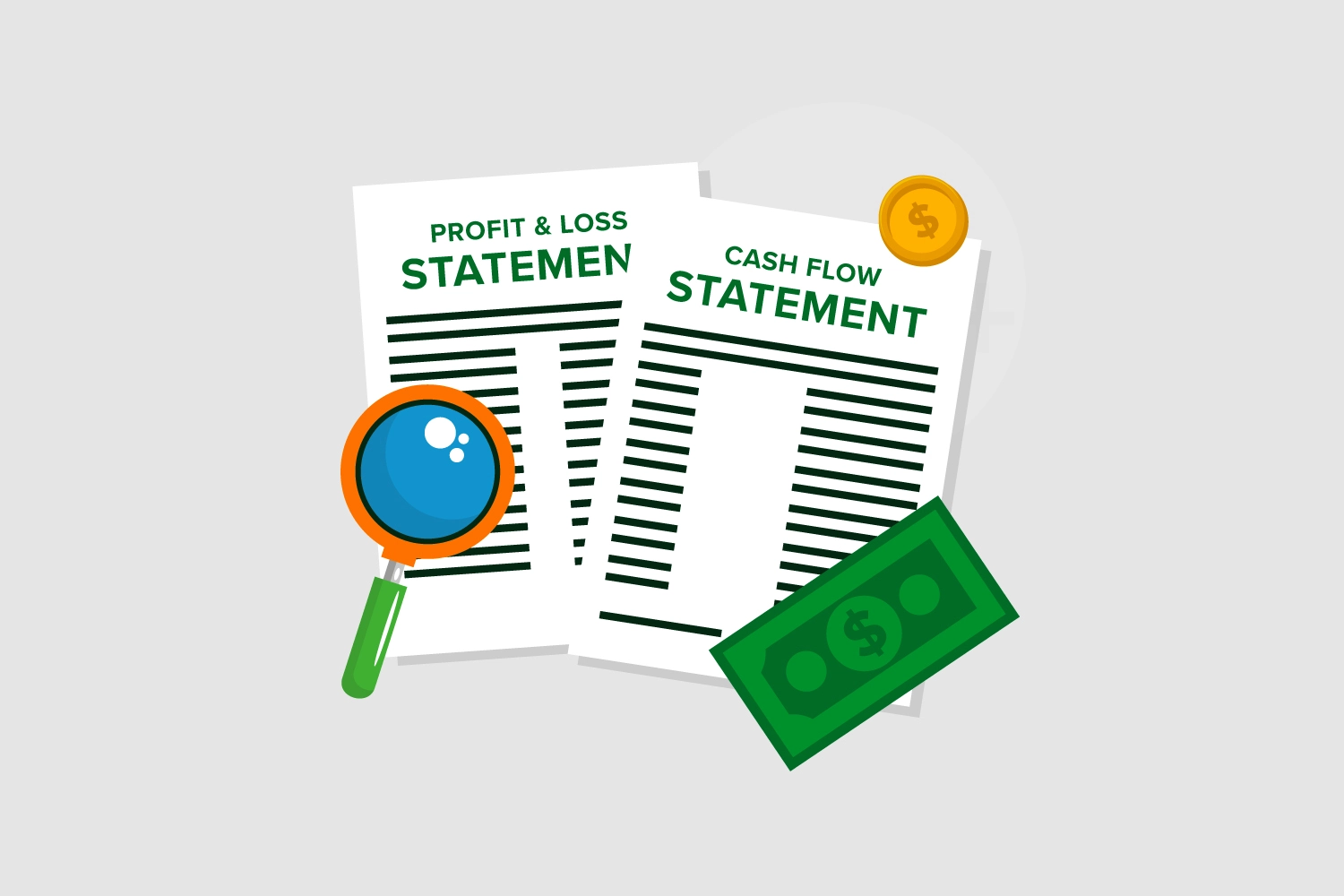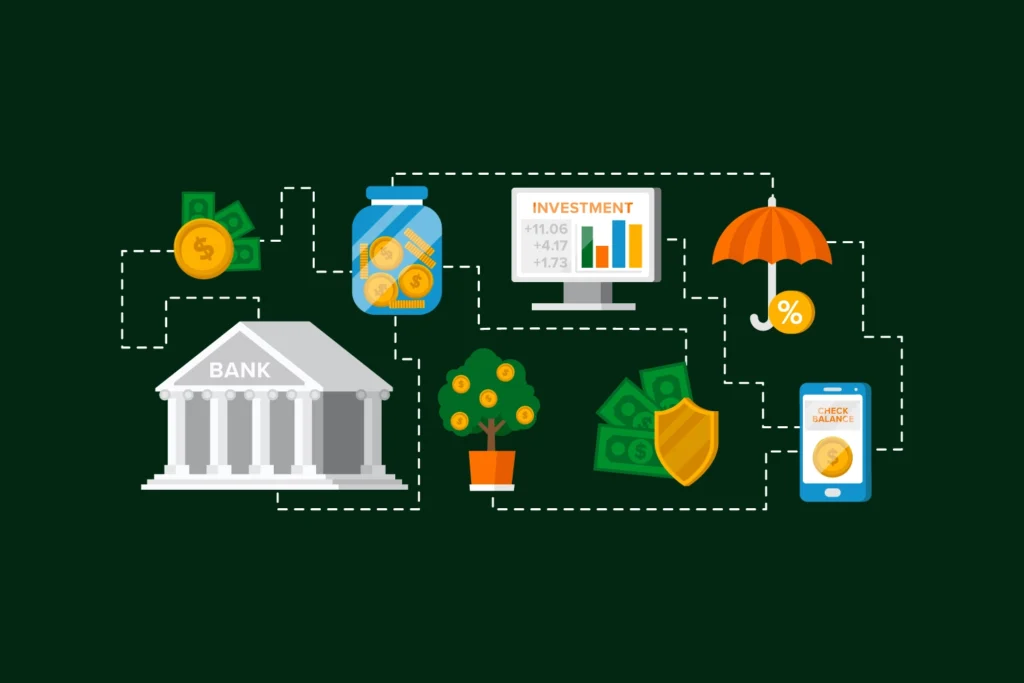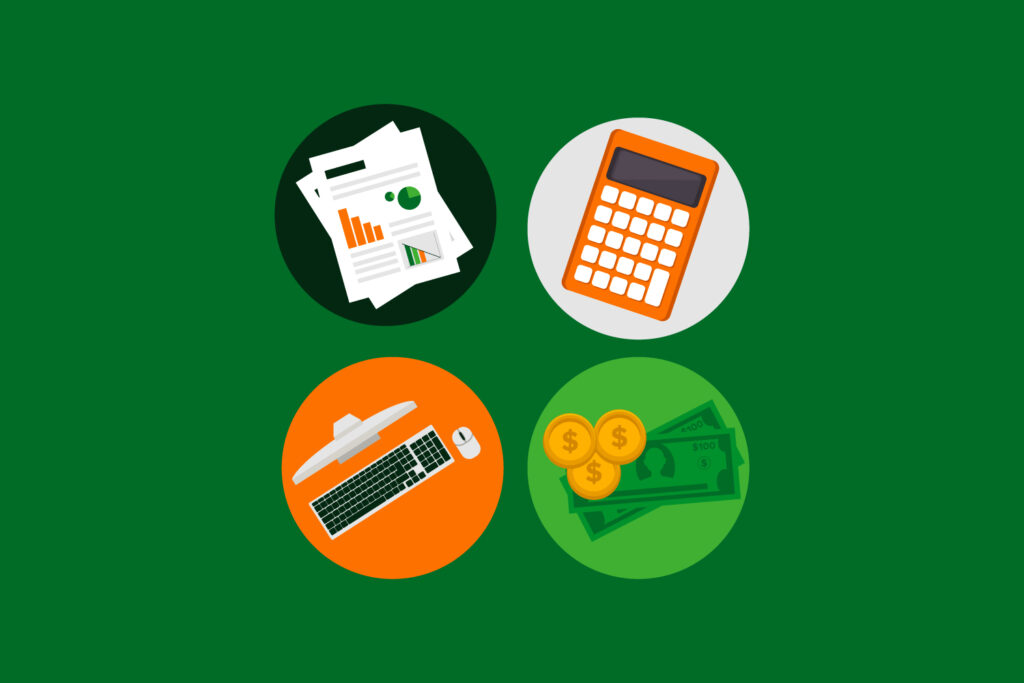Disclaimer: The articles published here on the City of Eau Claire Economic Development Division website are meant to be a helpful starting point as you explore doing business in our community. They’re not the final word on requirements or what’s best for your unique situation. We always recommend checking in with legal, financial, or other professionals for advice tailored to your business.
In the early days of running a business, it’s tempting to focus on the visible wins like planning your grand opening or making your first sale. But behind the scenes, there’s one more thing that deserves your early attention: your financial statements.
There aren’t so much paperwork as they are a tool for clarity. The better you understand these numbers early on, the easier it is to make smart choices, spot opportunities, and be ready when a bank or grant program administrator asks to see them the more your business grows over the years.
Let’s break down what these documents are and why you need them.
What Are Financial Statements, Anyway?
Financial statements are formal records of your business’s financial activity. They tell the story of how your business earns money, where it spends money, and what it owns or owes. If you’ve ever asked yourself, “How’s my business really doing?”, these are the reports that hold the answers.
There are three key financial statements every Eau Claire entrepreneur should know:
1. Income Statement (aka Profit & Loss Statement)
This report tracks your business’s revenue and expenses over a certain period—monthly, quarterly, or yearly. It shows how much you earned from sales, what you spent on things like supplies, rent, and wages, and what’s left over as profit (or loss).
2. Balance Sheet
This document shows snapshot of your business’s financial position at a specific moment.
It lists:
- Assets: What your business owns (cash, equipment, inventory, etc.)
- Liabilities: What your business owes (loans, credit card balances, unpaid bills)
- Equity: What remains after liabilities are subtracted from assets
It essentially shows your business’s net worth. Lenders and investors use this to gauge your company’s stability, and it’s a great way for you to check whether you’re taking on manageable debt.
3. Cash Flow Statement
Sometimes your business might look profitable on paper but still struggle to cover bills. That’s where the cash flow statement helps.
This document tracks the actual movement of cash in and out of your business across three areas:
- Operating Activities (customer payments and supplier costs)
- Investing Activities (buying or selling equipment)
- Financing Activities (loans or owner investments)
For businesses with seasonal ups and downs—say, a landscaping company that’s busier during the summer months or a boutique with holiday sales—this report is essential. It helps you plan ahead so you’re not caught off guard when cash is tight.
Together, these three reports give you a full picture of your business’s financial health. Not only are they necessary for tax season or loan applications, but they’re also tools to help you make smarter, more confident decisions all year long.
Getting Started: What You Need
If you’re already feeling overwhelmed, the good news is you don’t have to be a CPA or financial whiz to prepare basic financial statements. You just need to stay organized and develop some good habits early.
Here’s what will set you up for success:
✅ Make Sure Your Bookkeeping Is Accurate
Pick a bookkeeping system that works for you. Popular options like QuickBooks, Xero, and Wave are user-friendly and designed to track income, expenses, invoices, and more all in one spot. Whether you’re running a shop in Oakwood Hills or an online store from home, having a reliable system is key.
✅ Separate Your Business & Personal Bank Accounts
If there’s one thing to do right away, it’s this: Keep your business and personal finances separate. Open a business checking account (and maybe a savings account, too) so every business deposit and expense is easy to track. This simplifies preparing your financial statements and boosts credibility if you seek funding.
✅ Save Your Receipts & Invoices
Don’t toss receipts, even for small purchases like a coffee meeting with a client. Keep digital or paper copies of receipts, invoices, purchase orders, and bills. These documents back up your records and make tax time and potential audits much easier. Many accounting apps even let you snap and upload receipts straight from your phone.
✅ Track Your Assets & Liabilities
Keep an up-to-date list of what your business owns (equipment, tools, inventory, laptops) and what it owes (loans, credit cards, outstanding bills). This will help when creating your balance sheet. Even small purchases add up, so staying current matters.
Not sure you can take this on yourself? Hiring a local bookkeeper or accountant, even for just a few hours a month, can make a huge difference. They’ll help set up your systems, walk you through your first reports, and keep you on track. Eau Claire has plenty of pros experienced in working with startups and small businesses. Think of it as an investment in peace of mind; when your finances are in order, everything else becomes easier.
Tips for First-Time Founders
If your head is spinning when it comes to finances for your startup, here are some friendly tips to keep you on track without drowning in paperwork:
Start simple. No need to create a 30-page report your first month. A basic income statement and balance sheet give you the essentials to understand how your business is doing. Keep it manageable and grow your knowledge from there.
Review monthly. Set a regular date, like the first Monday of every month, to check your financial statements. Think of this as a monthly business checkup. Doing this regularly helps you catch small issues early and spot patterns in income and expenses, making budgeting and planning easier.
Ask questions. Financial statements aren’t supposed to be confusing. If a number doesn’t add up or a trend worries you, dig deeper. Maybe expenses are rising for a reason you can control, or you missed recording a sale. Being curious helps you learn and make smarter decisions.
Plan ahead. Financial statements aren’t just about looking back; they’re powerful tools to help you look forward too. Use them to create projections, set realistic goals, and adjust your budget as your business grows. Whether you’re hiring your first employee, launching a new product, or expanding your marketing, knowing your numbers helps you plan smarter.
Managing your business finances is a skill you build over time. By starting simple, staying consistent, asking questions, and planning ahead, you’ll create a strong foundation to support your growth here in Eau Claire’s vibrant small business community.
When to Call in a Pro
Managing your business finances can sometimes feel like juggling flaming torches, especially when things speed up. So, how do you know when to bring in a professional?
Here are some signs it might be time to get expert help:
Your business is growing quickly.
If sales are climbing, you’re hiring, or expanding your offerings, your finances will get more complex. A bookkeeper or accountant can keep everything organized, ensure your records are accurate, and help you stay on top of tax requirements.
You’re preparing to apply for financing.
If you’re applying for a loan from a local bank, looking into investment from angel investors, or applying for startup funding programs, polished financial statements can make a big difference. A pro can help you present your business in the best light.
You want to reduce stress.
Running a business is a full-time job and then some). If bookkeeping feels like too much or you’d rather focus on what you do best—making products, serving customers, or marketing—outsourcing your accounting can free up your time and give you peace of mind.
Eau Claire is home to many skilled accountants and financial advisors who specialize in helping small businesses and startups. They understand the local market and can offer personalized guidance. Plus, if you’re just starting out or want free expert advice, you can also check out the Wisconsin Small Business Development Center (SBDC) at UW-Eau Claire. They offer no-cost advising to help you make sense of your financial statements, develop budgets, and plan for growth. It’s a fantastic resource before you commit to paid services.
Remember, asking for help isn’t a weakness. It’s a smart business move that sets you up for success right here in Eau Claire.
You’ve Got This
Starting a comes with big responsibilities, but understanding your finances gives you more control, clarity, and confidence as you grow. Take it one step at a time, or start looking for help now, and you’ll set yourself up for success that much faster.





